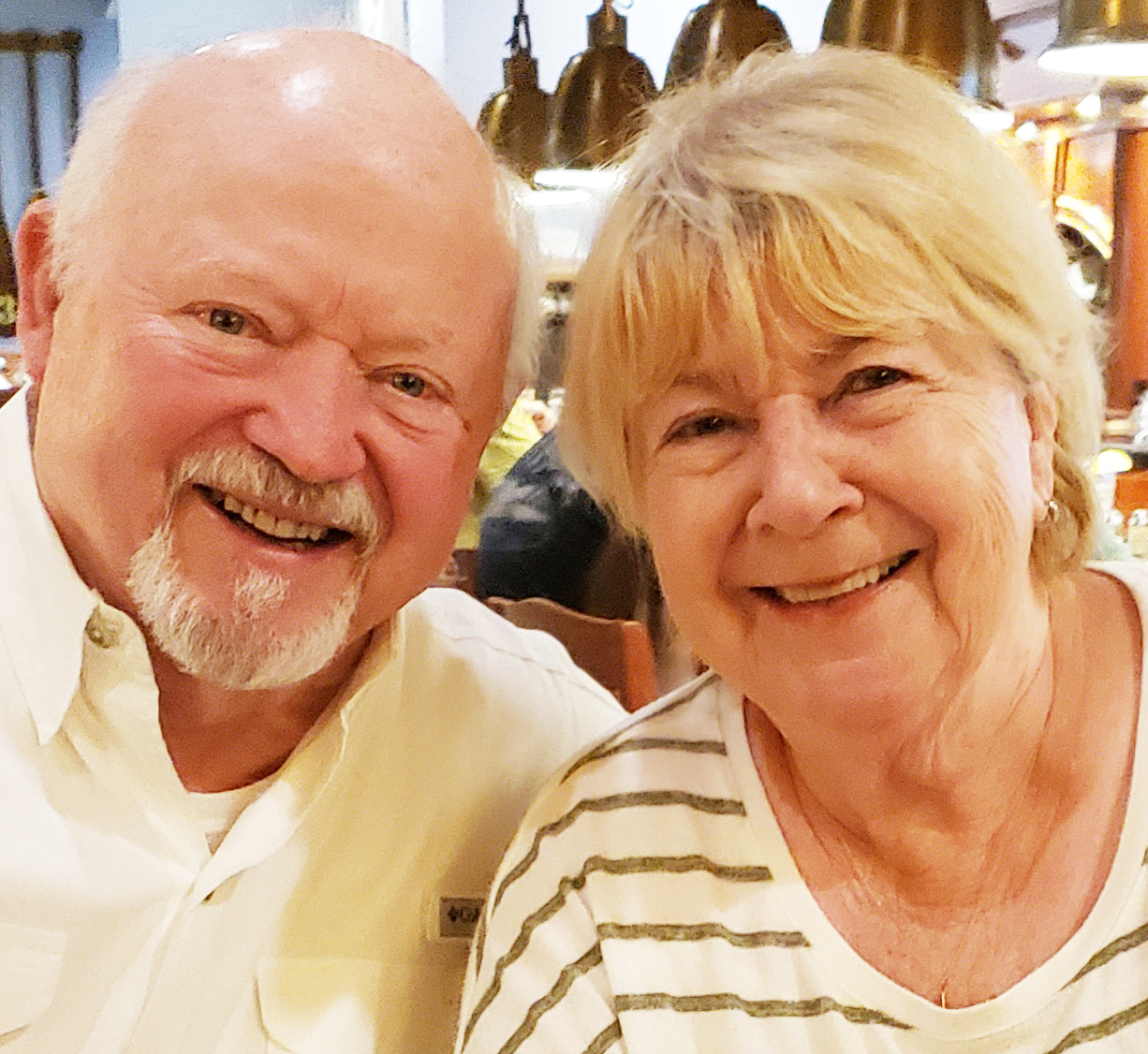
Elections, Inflation and Conflict…In Times Like These w Hall Powell is my good friend’s take on how to navigate nonprofit management in an uncertain world.
“It is the best of times and it is the worst of times…”
This opening sentence of Dickens’ classic, A Tale of Two Cities, could have been a prophesy of what would happen 431 years later: The Covid-19 Pandemic and the resulting political turmoil. The book is a story of sacrifice and redemption.
There have been many great articles recently published that offer suggestions as to how to survive as a nonprofit organization in “times like these.” Many of them primarily address fundraising concerns and some to overall management angst as it relates to just plain survival. I will offer comments about both subjects.
How can we transform the “worst of times” into the “best of times” as it affects managing our organizations? Perhaps, during these days of waiting to return to a more normal day-to-day operation we can evaluate, or better yet, “reimagine” how to convert our sacrifices into victories. Consider the following:
Why Does Your Organization Exist?
Times like these define the importance of the nonprofit sector, and (should) showcase the value of each organization, small and large. Without the myriad of organizations that serve the needs, and provide services for individuals, families, communities and the world at large, the situations locally and nationally would be much worse.
Elections, Inflation and Conflict…In Times Like These w Hall Powell
Perhaps now is the time to evaluate the effectiveness and criticalness of the organization. If it goes under during times like these, ceases to exist, who will be impacted? Who will miss it? What would be the impact if you close the doors? If you can’t make a compelling reason for continuing to do what you do…then maybe you need to consider a merger with another similar organization; that by combining both organizations become stronger (as one) and more impactful and efficient in serving those you serve or could serve. I do think “the times we are in” will greatly impact the nonprofit sector in various ways, and can (and should) result in stronger and more impactful organizations that are able to survive and become more effective. I also believe that there will be a culling of organizations that cannot justify their continues existence even though their origins were will-intended and for a time helpful.
Review and Assess Your Volunteer Leaders
In “times like these” how are your volunteers (Board members and others) functioning, helping, being involved to make sure you are a viable, strong, critically important organization that fulfills the purpose of the organization as it meets the needs of hurting people and the quality of life in the community(s) you serve?
If your board members do not have the skills, experience, and ability to help ensure your impact and survival, then maybe you need to rethink how you recruit and involve them. No longer can you afford to recruit “Letterhead” board members who are recruited for their names that look good on the letterhead and fundraising pieces. Board members should serve as consultants and advisors to the executive and staff; each one with a successful record of expertise in tier own profession or life’s experiences. The fields of law, accounting, human resources, philanthropy, investment and other skills, as deemed appropriate to your particular organization and its purpose and mission, should be represented among your volunteer leaders.
If your current board members are not actively and effectively involved in helping you to survive and continue to fulfill the purpose of the organization, it is a good time to “come out of the ashes and rise” to a new and more effective partnership with volunteers who can truly help (See Re-Imagining Philanthropy by Jimmy Larose).
Financial Resources
I don’t know who will be reading this article. You might be the chief executive officer, someone responsible for fundraising or a program director: I hope there will be some accountants, grant writers, donor management staff, and hopefully, some board members. But regardless of your responsibilities or interests, I hope the following thoughts will be helpful.
Many people in the nonprofit sector are uncomfortable in discussing the need for fundraising. There are individual exceptions, and certainly some nonprofits major in fundraising unabashedly, especially in some of the larger, national organizations, and they do it well. However, as I have observed in my more that forty years of nonprofit fundraising, I have to believe that for many nonprofits fundraising is a necessary inconvenience, and uncomfortable activity at best, and are always trying to find the “easy way out.”
Dear reader, I don’t know where you are in your perception of fundraising, but allow me to make some suggestions and observations “during these times” when we can be assessing and planning for the release of confinement and social-distancing.
First, determine how important is money for the fulfillment of the purpose of your organization. I mean important from the point of view that, if you are not totally funded by grants or government funding, it is more of a management challenge to budget and spend money rather than having to raise money to fund the operations of the organization. If you are in the latter category of raising money is not a luxury, then money becomes a top priority for the organization’s efforts to secure it.
Next, find out how you can do a better job of raising money. To do that, I suggest a “reality check” as a productive exercise:
- The role of fundraising. If fundraising is truly a priority for your organization make sure that you have all you need for success: (1) A qualified fundraising executive with the status and support of management and the Board, and that (2) that person or persons are paid an appropriate amount of pay commensurate with their efforts and results. (3) Make sure the chief fundraising officer has support staff.
- Do you have a compelling Case for Support? Without it you are dead in the water. No wind in your sails. If you cannot demonstrate why there is not a unique, critical need for funding…well, why should anyone give money to you? A compelling case for support backed by a sound plan will always attract meaningful funding if donors are asked in the right way.
- Do what you should have been doing: In these times stay in touch with your donors. Develop good relationships with them, one-on-one as best you can. Make phone calls to your major donors and just have a friendly conversation without making an ask. Get to know them. See how they are doing during ‘these times.” Ask for their feedback about how they perceive your organization. Explain the challenges you are dealing with and how you continue to fulfill you mission in spite of current obstacles.
- If you are relying on grants, especially government grants, beware. Government funding can change at anytime and I predict it will become less available in the future. Review how you are conducting special events for fundraising. Most are not cost effective, meaning that for all the efforts, time and money spent in producing them, they do not result in a justifiable return on investment. I do think a carefully planned “Signature Event” can be the exception within the event itself and lead to larger, individual gifts during the event, and afterwards. The “real money” is in major gift fundraising.
At the close of A Tale for Two Cities, Carton, a heroic character who sacrificed himself for a worthy cause said this: “It is far, far better thing that I do, than I have ever done; it is a far, far better rest that I go to than I have ever known.”
I pray that we, unlike Carton, don’t suffer the blade of the guillotine, but go on and turn our sacrifices of coping with the economic and cultural challenges of our times and be stronger, wiser, and more effective in serving the people and communities we are called to serve. “The best of times” are still ahead.
Elections, Inflation and Conflict…In Times Like These w Hall Powell was first posted at PAX Global.
For more articles like Elections, Inflation and Conflict…In Times Like These w Hall Powell VISIT HERE
ABOUT THE AUTHOR – HALL POWELL:
 Hall has served as Senior Vice President of Development Systems International (DSI) for fifteen plus years and has over 40 years of fundraising experience, including 30 as a fundraising consultant. He has provided campaign and development counsel to a wide variety of institutions throughout the country, with special emphasis in the healthcare field. Prior to joining DSI, Hall was senior consultant with the fundraising consulting firm Alexander Hass of Atlanta, Georgia. Previously, Hall served as the Executive Vice President of the Memorial Health Foundation, Inc. in Savannah, Georgia, and the founding Executive Director of the New Hanover Regional Medical Center Foundation, Inc., in Wilmington, North Carolina. He spent more than four years as the founding Director of the Amethyst Foundation in Charlotte where he played a significant role in the development of a nonprofit management seminar for Winthrop University. He also served as Director of Graduate Administration at Winthrop and was responsible for directing the Executive MBA Program as an Associate Professor in the Management Department. A seasoned lecturer in the nonprofit sector, Hall has also been an instructor with the Duke University Nonprofit Management Seminar. A Certified fundraising Executive, Hall has served on the national board of directors of the National Society of Fundraising Executives, now known as the Association of Fundraising Professionals (AFP). He has also been instrumental in forming two AFP chapters. He holds an undergraduate degree from Guilford College and an MBA from Winthrop University. Hall also engaged in graduate studies at Columbia International University. In his role as a fundraising counselor, Hall Powell is a strong advocate of the underlying philosophy of “donor-centered fundraising,” meeting the need of the donor to give, not putting the needs of the nonprofit organization as the primary motive for the donor/institution relationship. With this underlying philosophy for building comprehensive fundraising programs for institutions he served as Chief Development Officer, and for those he serves as fundraising counsel, he supports the Major Gifts Ramp Up model. The model, accurately presented in 13 chapters built upon tried and proven best practices for successful major gifts fundraising, emphasizes building capacity for the nonprofit organization and long-term donor relationships.
Hall has served as Senior Vice President of Development Systems International (DSI) for fifteen plus years and has over 40 years of fundraising experience, including 30 as a fundraising consultant. He has provided campaign and development counsel to a wide variety of institutions throughout the country, with special emphasis in the healthcare field. Prior to joining DSI, Hall was senior consultant with the fundraising consulting firm Alexander Hass of Atlanta, Georgia. Previously, Hall served as the Executive Vice President of the Memorial Health Foundation, Inc. in Savannah, Georgia, and the founding Executive Director of the New Hanover Regional Medical Center Foundation, Inc., in Wilmington, North Carolina. He spent more than four years as the founding Director of the Amethyst Foundation in Charlotte where he played a significant role in the development of a nonprofit management seminar for Winthrop University. He also served as Director of Graduate Administration at Winthrop and was responsible for directing the Executive MBA Program as an Associate Professor in the Management Department. A seasoned lecturer in the nonprofit sector, Hall has also been an instructor with the Duke University Nonprofit Management Seminar. A Certified fundraising Executive, Hall has served on the national board of directors of the National Society of Fundraising Executives, now known as the Association of Fundraising Professionals (AFP). He has also been instrumental in forming two AFP chapters. He holds an undergraduate degree from Guilford College and an MBA from Winthrop University. Hall also engaged in graduate studies at Columbia International University. In his role as a fundraising counselor, Hall Powell is a strong advocate of the underlying philosophy of “donor-centered fundraising,” meeting the need of the donor to give, not putting the needs of the nonprofit organization as the primary motive for the donor/institution relationship. With this underlying philosophy for building comprehensive fundraising programs for institutions he served as Chief Development Officer, and for those he serves as fundraising counsel, he supports the Major Gifts Ramp Up model. The model, accurately presented in 13 chapters built upon tried and proven best practices for successful major gifts fundraising, emphasizes building capacity for the nonprofit organization and long-term donor relationships.
As a consultant, Hall Powell was retained by Memorial Health University Medical Center Foundation, to develop and strategic plan for fundraising. The major teaching and research regional medical center had a development program raising approximately $2 million annually through the activities of 12 fundraising events and grant seeking, and it was desiring to raise $37 million to fund the building of an advanced cancer research institution on the campus of Memorial Health. For the next four years, Hall served as the Chief Executive Officer of the medical center’s Foundation for the purpose of implementing his strategic fundraising plan. In the first year of his tenure as CEO, Hall restructured the development program utilizing the donor-centered principles of Major Gifts Ramp Up and raised $12 million. Within the next three years, the $37 million goal for the cancer research institute was achieved while developing a comprehensive, capacity-building fundraising staff and program.


